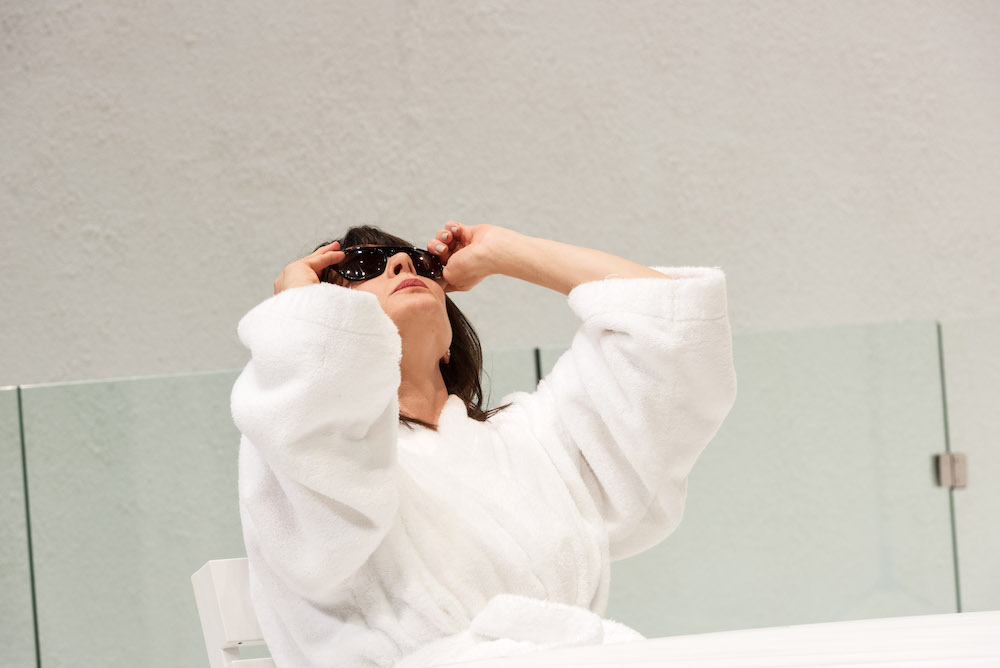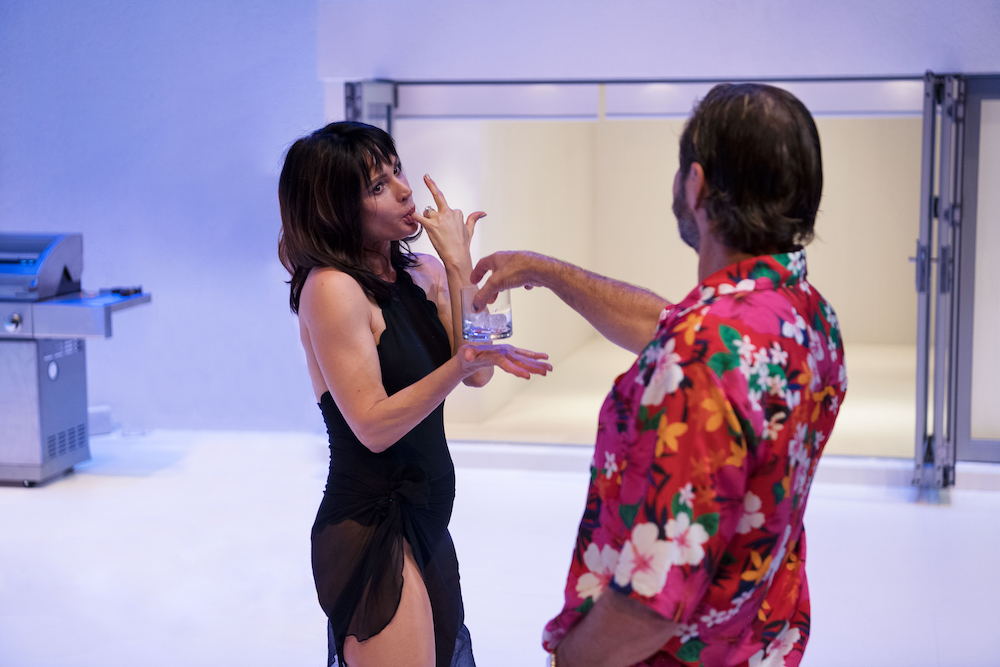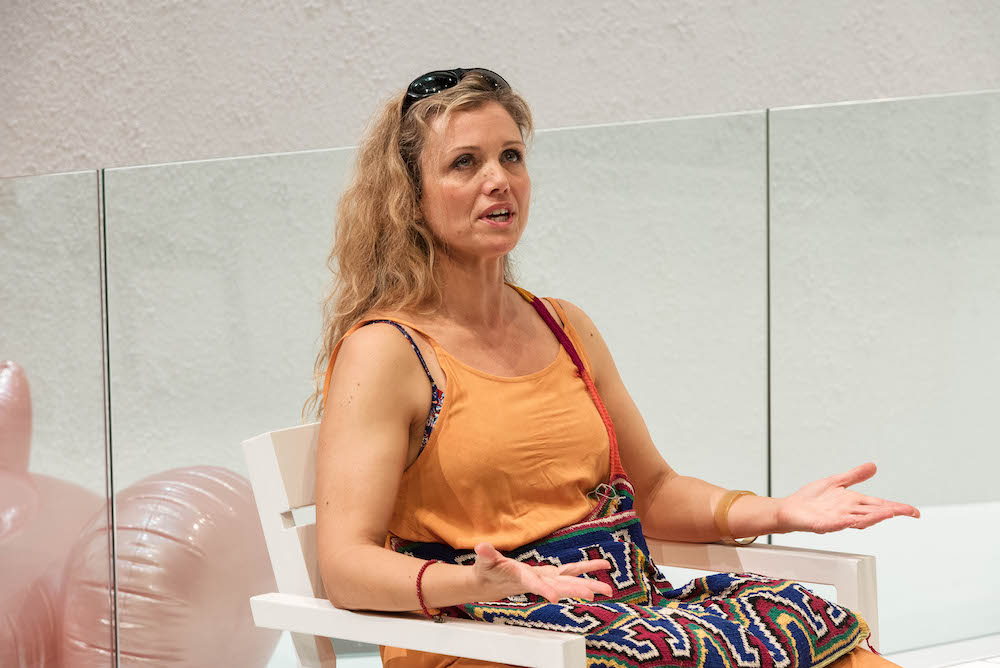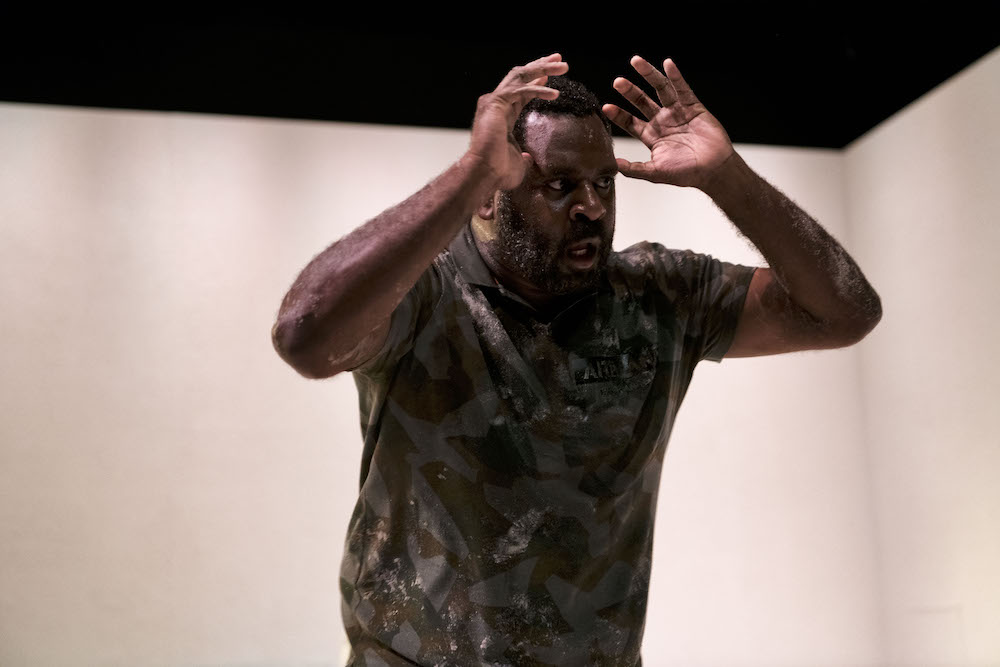Bille Brown Theatre, Brisbane
November 20, 2018
Queensland Theatre are finishing their 2018 season with a bang as Hedda transforms the Bille Brown Theatre into a lavish Gold Coast mansion and drags audiences down into the underbelly of the drug business in this localised version of Ibsen’s classic.
Norwegian playwright Henrik Ibsen’s Hedda Gabler premiered in 1891 and its title character is generally regarded as “the female Hamlet” said Queensland Theatre’s Artistic Director Sam Strong at the play briefing, referring to her strong, complicated and introspective nature as well as the compelling and destructive energy of the character. Hedda Gabler, the driven daughter of aristocratic General Gabler, marries reliable George Tesman and, dissatisfied with her new married life, manipulates her husband and the other characters into helping her achieve her own goals.
 Danielle Cormack in Queensland Theatre’s Hedda. Photo: supplied
Danielle Cormack in Queensland Theatre’s Hedda. Photo: supplied
While Ibsen’s Hedda is the bored housewife of an academic, Queensland Theatre’s production by playwright Melissa Bubnic drops its heroine beside the pool at a beachside Gold Coast mansion, all paid for by the Tesman family business; crystal meth. Directed by Paige Rattray, Bubnic’s Hedda is dark and dramatic, with unexpected moments of humour, as the characters struggle for control of the business, of their lives, and of each other.
Danielle Cormack brought a great deal of variance to the titular role of Hedda Tesman (nee Gabler), showing audiences a Hedda who is deeply ambitious and expertly manipulative. Hedda is relentless in pursuit of her goals, but also a woman who is occasionally vulnerable and afraid, horrified by the violence and viscera that are the reality of the drug business when they confront her in her own home. Cormack’s performance was exceptionally crafted; every flick of her eyes and shift of her weight from foot to foot felt natural and believable.
 Danielle Cormack and Joss McWilliam in Queensland Theatre’s Hedda. Photo: supplied
Danielle Cormack and Joss McWilliam in Queensland Theatre’s Hedda. Photo: supplied
Hedda is a seemingly heartless villain who pursues her own interests with little regard for others, and this is part of what makes her such an engaging female protagonist – she is a woman with no desire to nurture anything but her own ambitions, and no interest in giving up her lifestyle or time to care for others. An interesting addition to Bubnic’s version is that Hedda is unable to conceive naturally – although given Hedda’s nature, the audience is not necessarily convinced this is true – but she still uses the promise of a child as a bargaining tool with the Tesman family.
 Bridie Carter in Queensland Theatre’s Hedda. Photo: supplied
Bridie Carter in Queensland Theatre’s Hedda. Photo: supplied
A key tension in the play is not between characters, but between classes and positions of privilege. Bubnic’s Hedda is an educated businesswoman and a lawyer from upper middle class Melbourne with “degrees coming out her ears” in stark comparison to methamphetamine matriarch Julia Tesman, who states she never finished high school. There is also a tension between Hedda, who is from Victoria, and the others, who are proud Queenslanders.
Jason Klarwein was not entirely convincing as a Gold Coast bogan, the characteristic broad accent noticeably absent, but otherwise delivered a strong performance as George Tesman, prone to sudden movements and changes in mood. Bridie Carter showed an incredible range of emotion in her performance as Thea Elvsted, from relaxed conversation to gut-wrenching distress, and her relationship with Hedda was tense and distrustful. Elvsted, Thea’s father and the drug kingpin, was never seen onstage which only served to make his presence more threatening.
 Jimi Bani in Queensland Theatre’s Hedda. Photo: supplied
Jimi Bani in Queensland Theatre’s Hedda. Photo: supplied
Jimi Bani was intense as Tesman’s rival and Hedda’s ex-lover, Ejlert Løvborg, and Andrea Moor cut an intimidating, leopard-print-clad figure as sarcastic Julia Tesman, or Aunt Jules. Joss McWilliam was appropriately sleazy and laid back as corrupt Councillor Brack but dropped quite a few lines throughout the performance, and his final words lost some of their power as a result. Helen O’Leary played Berta, another Tesman family member in Bubnic’s work. Her role in the family business was not clearly defined, although her dressing of Hedda refers back to her initial role as a servant in Ibsen’s work.
The all-white set design by David Fleischer was complemented by sound design by Kelly Ryall and lighting design by Emma Valente to evoke the glaring Queensland sun, bouncing off the white sand of the Tesman’s beachfront mansion. The opening and closing of the mansion’s doors and blinds, as well as changes in lighting, were used to represent the passing of time and the drama of sudden entries and exits was heightened by the stage design of the new Bille Brown Theatre. Fake firearms were used with the most effectiveness I have ever seen onstage, especially dramatic in the intimate space of the Bille Brown Theatre, and loud, thumping music was used to transition between scenes.
Beyond the examination of Australian class structures, Hedda also explores themes of women’s agency and bodily autonomy, as well as the separation between the messy, fragmented world of addicts and the contrasting lavish lifestyle of those responsible, who often continue without consequence. Almost every character onstage was dislikeable or depraved in some way, and it is a real credit to the cast and their characterisation that the audience hesitated to applaud as the lights came back up.
Hedda is a ferocious work full of despicable characters, with a refreshingly unapologetic female lead and themes that will confront and challenge contemporary audiences.
Queensland Theatre’s Hedda plays at the Bille Brown Theatre until December 8











Comments
Log in to join the conversation.